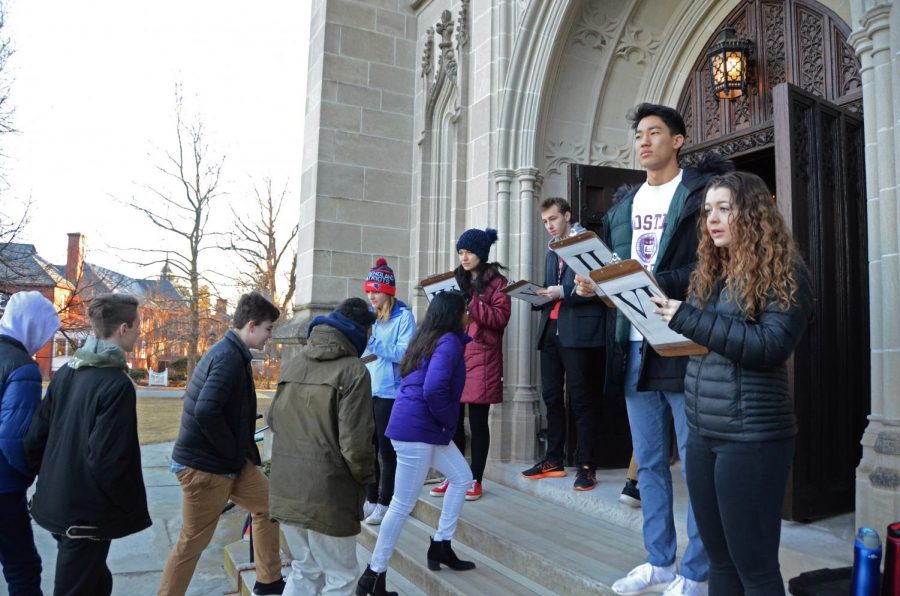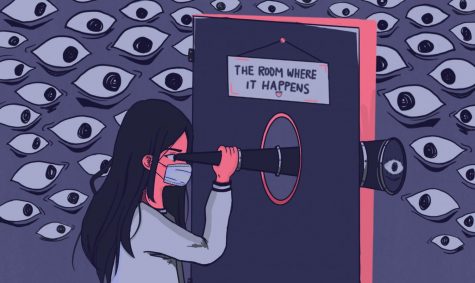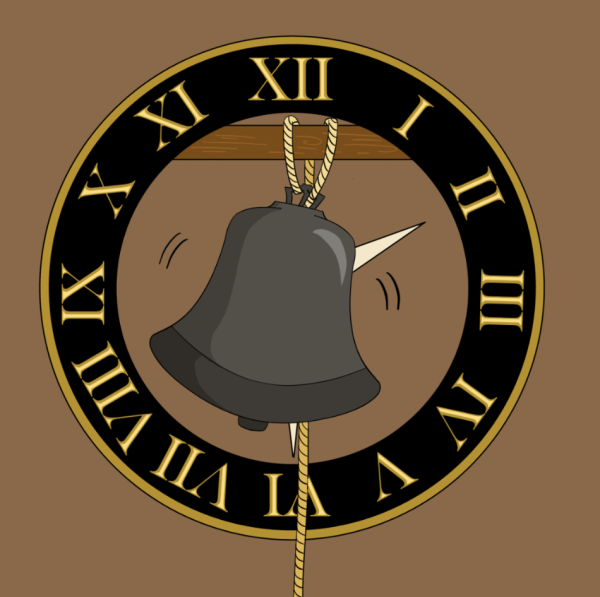Should We Livestream Chapel?
Students filing into Chapel.
Aren’t you tired of waiting in line to get in to chapel? I sure am. So I decided that I might improve upon the engineering class’s best efforts to reduce this wait. To streamline logistics Groton needs to get with the times and allow students to enter chapel virtually. We should live-stream chapel.
The student body will be able to get more sleep because they can easily wake up at 7:59, open up their laptop, and watch the service from the comfort of their own beds. Forget chapel attendance; just check the server traffic!
Imagine walking up to the pulpit to give your chapel talk, a moment held sacred in the minds of Sixth Formers and Third Formers alike. Imagine walking up to that pulpit and seeing nothing but your fan section, the faculty, and a large camera mounted in the back. The vast majority of your view consists of empty seats, row after row after row, each seat marking a student who didn’t think your talk was worth more than a hot breakfast or fifteen extra minutes of sleep. Yes, you can trust that the missing students are looking at their screens, watching you through a cold and lifeless camera, but does this make the room feel less empty? No, it doesn’t.
While this reality is a distant one, the sense of community at Groton has been under siege for a number of years. The most salient episodes of this siege have been the dropping attendance at open mic and the inability of roll call to attract even a quarter of the student body.
The key-card sign-in presented by the engineering class will not damage Groton’s community to the same degree as an option to live-steam services might, but it is still a step in the same, markedly wrong direction. Much like a live-steam, the use of key cards increases the efficiency of the morning services but sacrifices an element of human interaction in the process. The trade of humanity for efficiency yields the same result no matter its scale: a deduction in the strength of our community.
The inefficient amount of time needed for student-run, in-person attendance taking is not a bug in the Groton system but a feature. In most Christian churches a duty alternates among the members of the congregation: to be a greeter at the beginning of a service.
The church which I attended before Groton has two rows of three doors, which made six greeters necessary just to open the doors, and an additional six are required to hand out the bulletin once you enter the building. Almost all other churches have a similar system, in which a large group of people are appointed simply to hand out paper and to open the door.
The practice of leaving a pile of papers and having people grab one is nothing new, and the same goes for doorstops. Then why, we must ask, do so many churches appoint people to this time-demanding task?
They do it because the brief moment of human interaction created by the greeters makes you feel welcome in a community of worshipers, and that just feels good. When I walk into church over break, I am welcomed by a greeter upon entering the building, welcomed by the priest in hallway, welcomed by another greeter upon entering the sanctuary, and welcomed once more when I am handed my service plan. By the time the service starts, despite not being an active church member and not even believing in God, I feel as if I belong there, in the moment, worshipping as part of a community.
During my third and fourth form years, I was able to get this feeling in St. John’s. I would walk up to the chapel doors and be welcomed, by name, by some friendly senior with whom I may have barely been acquainted. This did not happen every time I went to chapel, and my name was widely known only because I had a brother two forms above me. But that is beside the point. What matters is that when I was greeted by name, I felt welcome, that I mattered to people, and that the whole school was a cohesive community. Despite becoming closer friends with the chapel prefects each school year, I haven’t experienced this same feeling since fourth form.
Chapel is broken, but the way to fix it is not with a modern attendance system. We should require that Chapel Prefects memorize the names of each and every community member. They should greet each student individually and by name, for example: “Good morning Temba, how are you?”. The same advice goes for the deans who are stationed by the entrance.
If we make chapel a time where the whole community comes together, where we all feel welcome and connected to each and every one of our peers, maybe we will stop checking our watches and stressing about a small crowd gathered by a door.













